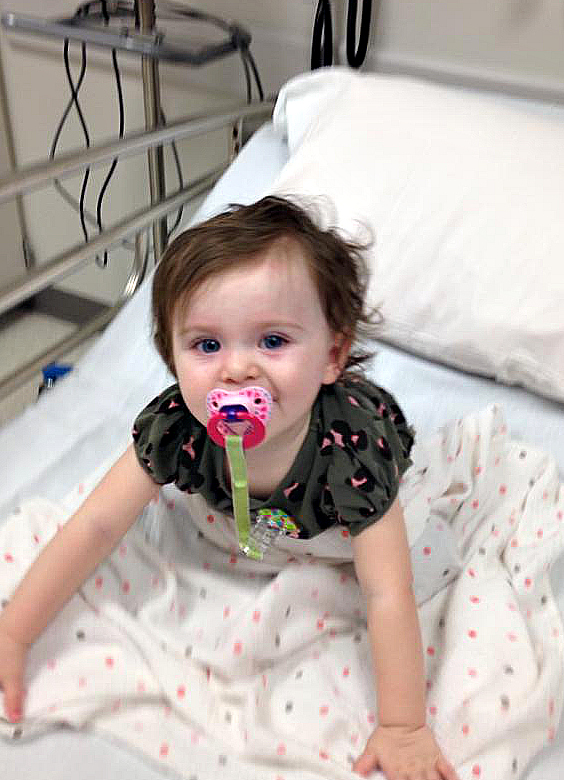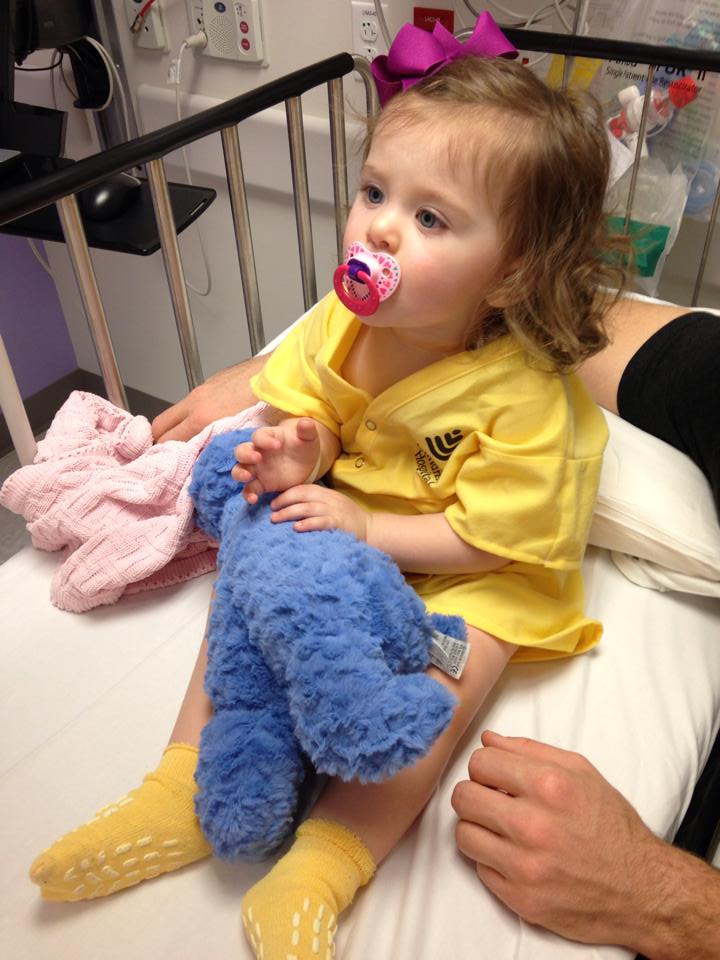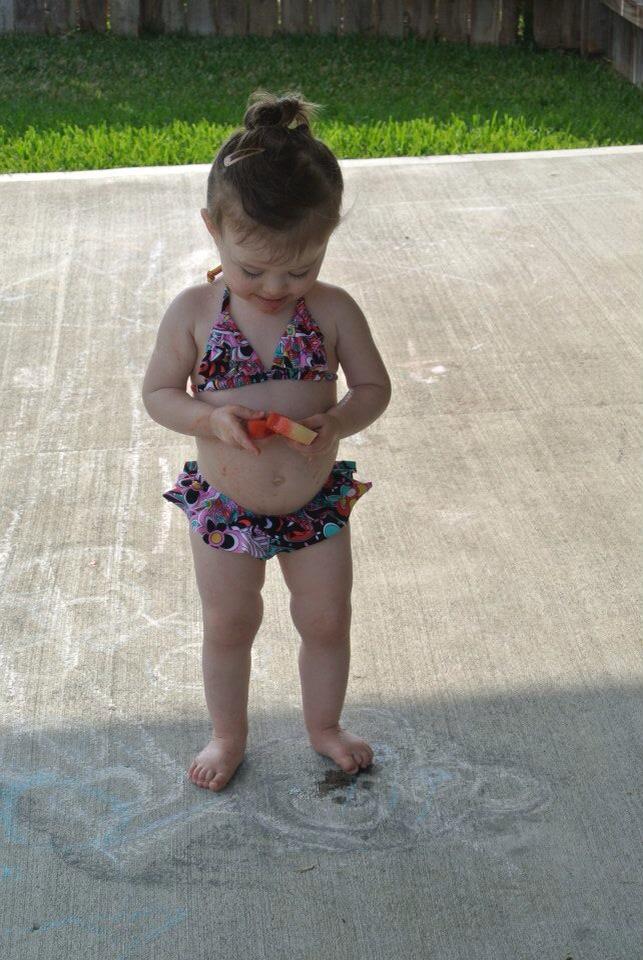Growing up, I remember the enormous Mayo Clinic Family Health Book that my mom would take down any time my sister and I were feeling under the weather. She would go through the symptoms and pretty much diagnose our ailments before we even saw a doctor. Her reasoning was never to undermine a doctor, she just always liked to be informed. This diligence and thirst for knowledge was never as important as when my grandmother took a fall while leaving jury duty. The initial concern was broken bones, but when her vitals were less than desirable, my mom noticed little spots all over her hands and suggested that there was an underlying condition that the doctors had not been alerted to. When my grandmother fell, she hit a planter box, and the blow to the abdomen had torn her intestine. Granted, when she left the hospital, it was with an ileostomy, but the fact that she even left the hospital considering several days of undiscovered internal bleeding was a miracle. I wouldn’t say that my mother’s influence has made me hypersensitive to illness {though my friends may chastise my WebMD use}, but I feel like it has made me more keenly aware of the power of observation and educating myself.
Prior to August 2013, my daughter Caroline {then 11 months} had stayed at home with her dad while I was working, received breast milk exclusively until 8.5 months, and was relatively unexposed to illness. She was extremely healthy, having visited the doctor only for normal check-ups, and was hitting all of the early childhood milestones at the correct intervals. Around 10 months she was standing on her own fairly well…sometimes for minutes at a time, and began exhibiting signs that she would be walking soon. Within the first week of being in daycare, Caroline had a high fever. Because it was the first time she had been febrile, we were concerned and took her to the doctor. Because Caroline’s pediatrician had left her existing practice to open her own and was not yet up and running, we took her to another doctor in the practice. She assured us that Caroline was fine – she did have fluid behind her ears, but it should drain, and she would be fine to go back to daycare on Monday if her fever was gone. I felt a little unsettled, but I figured the doctor knew what she was talking about.

Fast forward to November, Caroline had been getting fevers regularly – we’re talking nearly every week. Normally, one might attribute this to teething, but they were in the range of 102+, certainly not low-grade fevers, and absolutely no answers. Already having experienced roseola a month prior, when Caroline had a fever of over 103 without breaking for almost 4 days, we took her to the ER. They also had no answers for us, except it was most likely a viral exanthem, and we just needed to wait it out. Oh, and let me mention, the child who in late July/early August was showing signs of walking, was still not walking steadily on her own…maybe 4-5 steps here and there. Not having any answers was terrible…and that’s not saying that any of the doctors did anything wrong, but it was incredibly frustrating as a parent to not have a way to make your child feel better.
The Winter months passed – Caroline was consistently sick…fevers were abundant, answers were not. Meanwhile, Caroline had started walking more confidently, though she developed a somewhat abnormal gait, and her toes pointed outward as she walked. This was something that we brought to the attention of the pediatrician, and she recommended we see an orthopedist. Yet again, we were met with, “She’s totally fine, it will get better, just give her a few weeks, we’ll just wait and see”. As a parent, it was heartbreaking. Obviously, the problems we were seeing with Caroline were minimal compared to what some children are enduring; however, in our heart of hearts we knew that there was something wrong, and that we needed answers.
And here is where the influence of my mother comes in again. In March, we took a trip to see my family for Easter, and while we could understand much of what Caroline was saying, my mom just kept commenting on how it was almost impossible for her to understand what Caroline was saying. At first I just brushed it off, but I started to make more and more observations for myself – talking to Caroline’s teachers at school and asking them for their input as well. I realized that her words were absolutely unclear. Additionally, words that at one time were very clear were now almost unrecognizable, save for the fact that we knew what she was trying to say. ‘Please’ which she once pronounced “ease” was now just the “eee” sound, and we noticed the same phenomena with other words as well.
Enough was enough, and it became increasingly apparent to me that something needed to be done. I took it upon myself to call the Early Childhood Intervention {ECI} office in our school district and set an appointment. As I was discussing my concerns with the therapist that was to conduct Caroline’s scheduled evaluation, she suggested that the issues with walking and with her speech may have to do with an inner ear issue. Suddenly, I felt like things were clicking. We may be making some progress! I set up an appointment with an ENT, and meanwhile, we went in for Caroline’s evaluation at ECI. She didn’t qualify for services because according to her evaluation, she was advanced for her age with regard to her cognition and motor skills {though the therapist did note issues with Caroline’s out-toeing, as well as collapsed arches} — however, her speech ranked among her lowest scores, just adding more to my case.

June 10 – nearly 10 months after we started seeing issues, Caroline had her appointment with an ENT, during which it was discovered that she had extreme fluid build-up in her ears, something absolutely abnormal for the Summer months. Again, no sign of infection; however, the ENT was certain that this fluid was not ever draining and that it was entirely likely the cause for Caroline’s speech and walking issues. Due to a scheduling ‘miracle’, Caroline’s appointment for ear tubes and adenoid removal was set for the following Monday. Immediately following the procedure, the doctor told us that the fluid was so incredibly thick in her ears that they had to use instruments which are not normally used, and that we should expect results almost immediately. We are now here 2 weeks post-op, and I can’t even begin to cover the changes that we have seen in this short time. Caroline’s speech has become so much clearer, she is saying many two to three, and even a few four-word phrases, and her toes are almost completely pointed forward. Her progress really has been amazing.
So, I guess I said all of that to say this – trust your instincts, if you think that something is wrong, it very well may be. Keep yourself educated…I know so many tell you NOT to google things, but use it as a tool to not frighten yourself, or to induce hypochondria, but to stay informed! Don’t be afraid to keep at it – you see your child every day…you know his/her tendencies/abilities/behaviors, and their doctor is not privy to that information unless you tell them. So if something is amiss, speak up, and be heard! You know your child better than anyone else, and if the one-size-fits-all/wait and see approach isn’t working, be an advocate for your child and keep pushing for answers!

















Oh man, that must have been so frustrating, waiting all that time. I’m glad she is much better now. As parents, we have to trust our instincts. I just wrote about my experience with something where I had to trust my mommy gut, and I’m so thankful I did. Best wishes to you and your sweet girl.
Oh, you poor mama! That makes my heart hurt for you and your sweet girl, but thank goodness she is better now.
Thank you for sharing this! It is so important for or culture to grow to respect the mom (and dad) as te expert on their child and drs as the expert on recommendations, not absolute answers. I’m so glad that you pushed until your daughter was healthy! An what a beauty she is! 🙂
As a speech-language pathologist and a mom, I always feel it is better to insist on evaluation when there is no medical risk to the child, such as when a hearing or speech evaluation are done. These early years are just too important for speech and language development to lose time waiting. Also, a child may qualify to receive speech therapy (or other services such as physical therapy or occupational therapy) in a private clinic even if they don’t qualify to receive therapy through ECI. These therapies are often covered by your insurance. If you continue to be concerned about your daughter’s speech and language ask your doctor for a referral to a private clinic. Early intervention is so important!